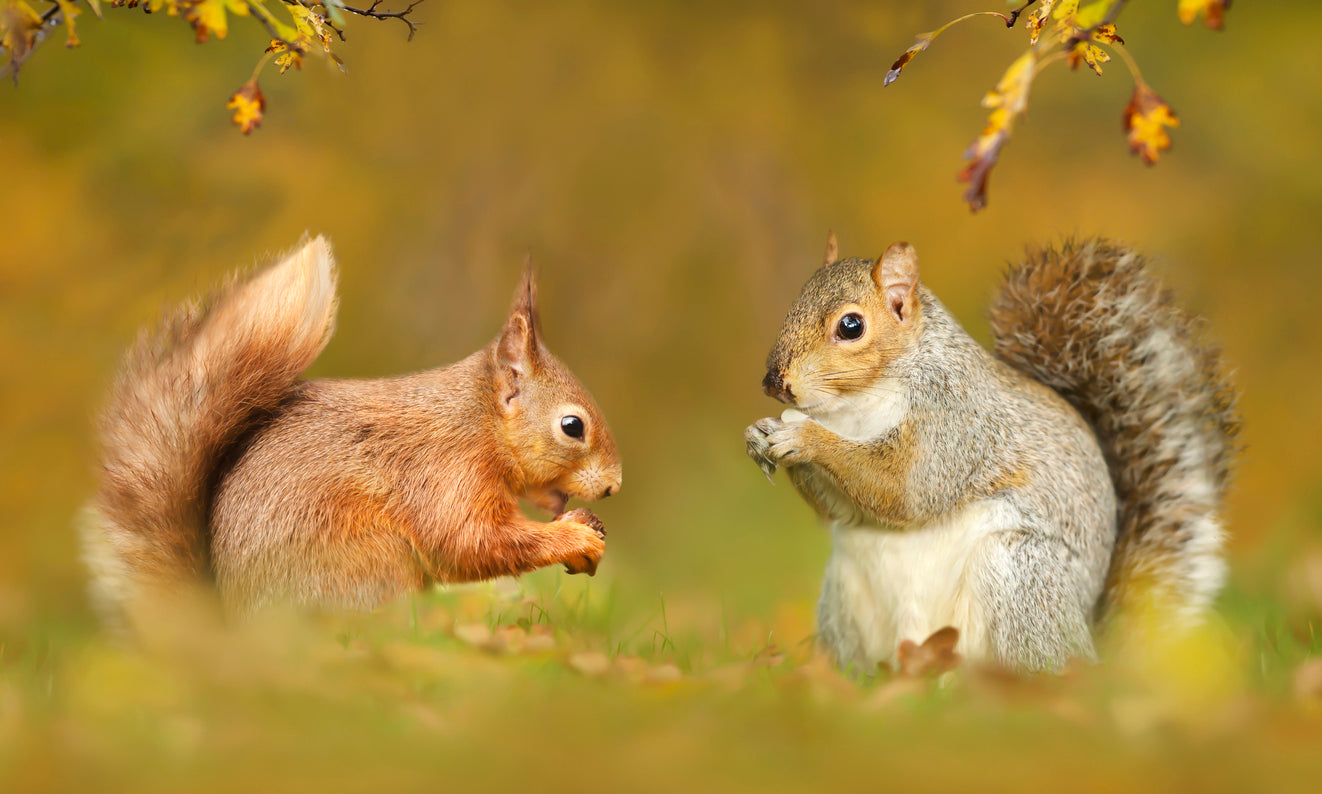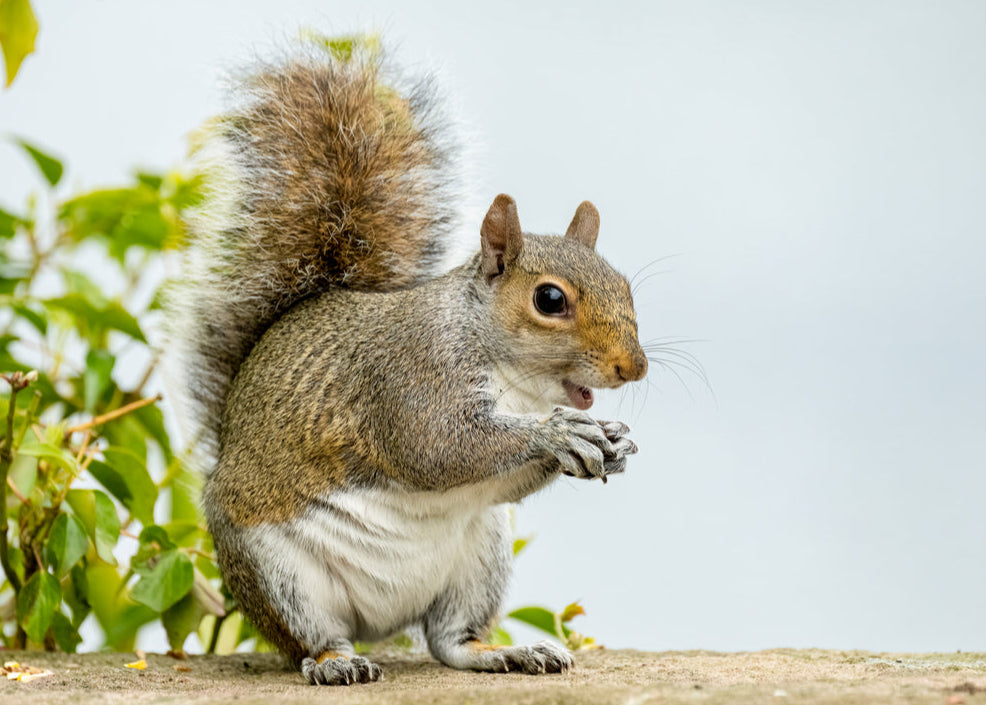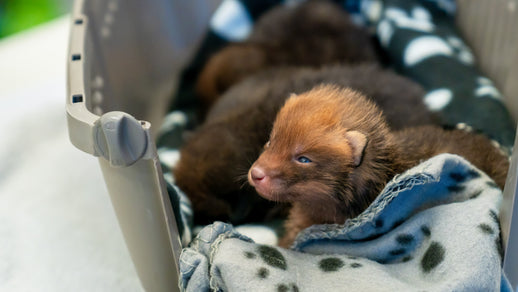
Squirrels
We have two types of squirrel in the UK; grey squirrels and red squirrels.

Squirrel Rescue
Signs that a squirrel is sick or injured include:
- Not moving or moving very slowly if you approach it
- Obvious injuries, for example if it's been hit by a car or caught by a cat or dog
- Swollen or sore areas on the face, which can be a sign of infection
- Hunched-over posture
Injured Grey Squirrels
Due to the Invasive Alien Species Order 2019 we can no longer rehabilitate and release grey squirrels, even if they've been injured and treated.
In instances where a grey squirrel is injured or unwell, the best option is to contact your local vet.
To transport a squirrel to the vet:
Be careful - squirrels have sharp teeth and can be extremely fast.
Wear thick gloves and quickly place the squirrel into a secure metal or plastic pet carrier with ventilation holes, lined with a towel or newspaper.
Trapped Grey Squirrels
If the squirrel is trapped (for example in a bird feeder or your house), free it. The law still permits freeing squirrels and releasing them where they were found. If the grey squirrel has only minor injuries, it's best to leave them in the wild.
Injured Red Squirrels
The law does not affect red squirrels, so it's still legal to rehabilitate and release red squirrel and infants. If the red squirrel is injured or orphaned, take it to your closest wildlife rescue centre.
Wear thick gloves and quickly place the squirrel into a secure metal or plastic pet carrier with ventilation holes, lined with a towel or newspaper.





